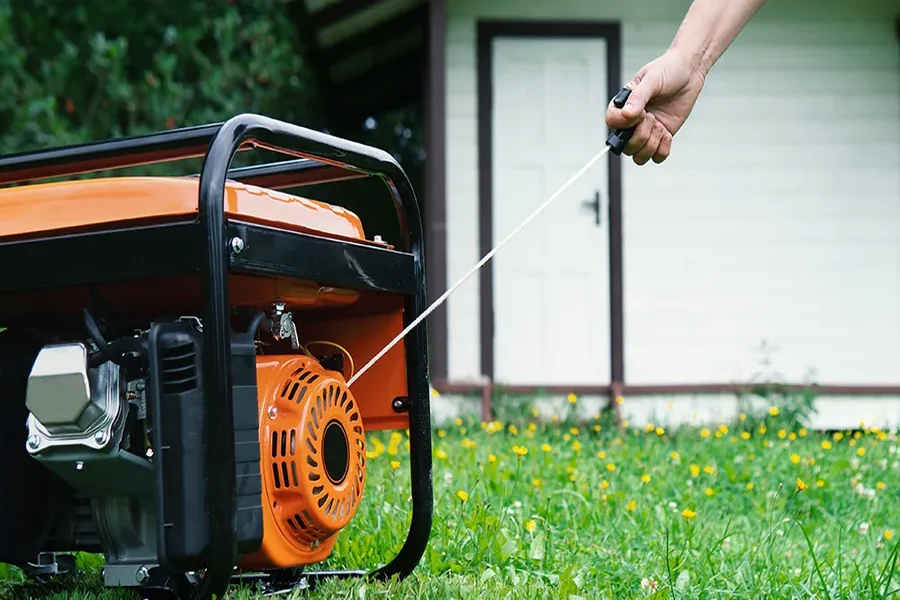Understanding the Risks of Generator Use
Generators are a lifeline during power outages, providing backup electricity to keep critical systems in your home running. However, using these machines improperly can lead to deadly hazards. One of the most serious risks is carbon monoxide (CO) poisoning, a silent and odorless gas that fuel-powered generators produce. Matthews, NC whole home generator installation by licensed electricians can help ensure proper and safe installation, reducing these risks. Electrical shock, fire hazards, and injury from improper handling further underscore the importance of using generators responsibly.
The Consumer Product Safety Commission (CPSC) reported that between 2011 and 2021, at least 770 people in the U.S. died due to CO poisoning related to portable generators. In just one year, 2021, 52 fatalities were attributed to generator-related CO poisoning, revealing how crucial it is for homeowners to follow safety best practices.
Proper Placement and Ventilation
Never operate a generator indoors, in an attached garage, basement, or shed—even if doors and windows are open. Generators must always be used outdoors, at least 20 feet from your home, with the exhaust directed away from living spaces and any openings such as windows, doors, or vents. This is critical, as even brief indoor operation can cause lethal CO buildup in minutes.
Investing in Carbon Monoxide Detectors
The CDC recommends that all homes with fuel-burning appliances or attached garages install battery-operated or battery-backup carbon monoxide detectors. For optimal coverage, place detectors near every sleeping area and on each home floor. Test alarms monthly and replace batteries biannually to ensure they are always operational. These detectors provide an extra layer of protection, giving crucial warning time if CO levels become dangerous.
Safe Fuel Handling and Storage
Generator fuel is highly flammable, making correct storage and handling paramount. Always store gasoline or propane in containers approved by the American National Standards Institute (ANSI) and keep them in a cool, well-ventilated area away from living spaces. Wait until your generator fully cools before adding fuel to avoid accidental ignition. Keeping fuel containers away from heat sources and direct sunlight is vital to minimize explosion risk.
Electrical Safety Measures
To prevent electrical hazards, never plug a generator directly into a wall outlet—a practice known as “backfeeding”—unless you have a professionally installed transfer switch. Backfeeding can send electricity back into the grid, endangering line workers and damaging your home’s wiring. Instead, plug appliances directly into the generator, using outdoor-rated, heavy-duty extension cords with a sufficient wattage rating. Inspect extension cords for any damage before use and avoid overloading your generator.
Regular Maintenance and Inspection
Routine maintenance is vital to keeping your generator running safely and efficiently. This includes inspecting hoses and fittings for fuel leaks, changing or cleaning air filters according to manufacturer recommendations, and testing your generator monthly. Regular maintenance prevents breakdowns during an outage and ensures early detection of any issues that may present safety risks.
Using Generators in Adverse Weather Conditions
Operating a generator in rain or snow increases the risk of electrical shock. Please set up your generator under an open, canopy-style shelter that allows airflow and keeps it dry. Never run your generator with wet hands, and avoid operating your generator in standing water to eliminate shock hazards. Always follow the manufacturer’s instructions regarding operation in adverse weather conditions.
Understanding Generator Capacity and Load Management
Know your generator’s wattage limits to prevent overload, which can lead to overheating, fires, or equipment failure. Prioritize emergency essentials such as refrigerators, sump pumps, and communication devices, and avoid plugging in all appliances simultaneously.
By implementing these safety measures, homeowners can maximize the benefits of their backup generator while minimizing risks. Prioritizing safety with every use means protecting not only your family and property but also your neighbors and local utility workers. Stay prepared and attentive, and always consult professionals for installation or major maintenance to ensure the safest backup power solutions for your home.

